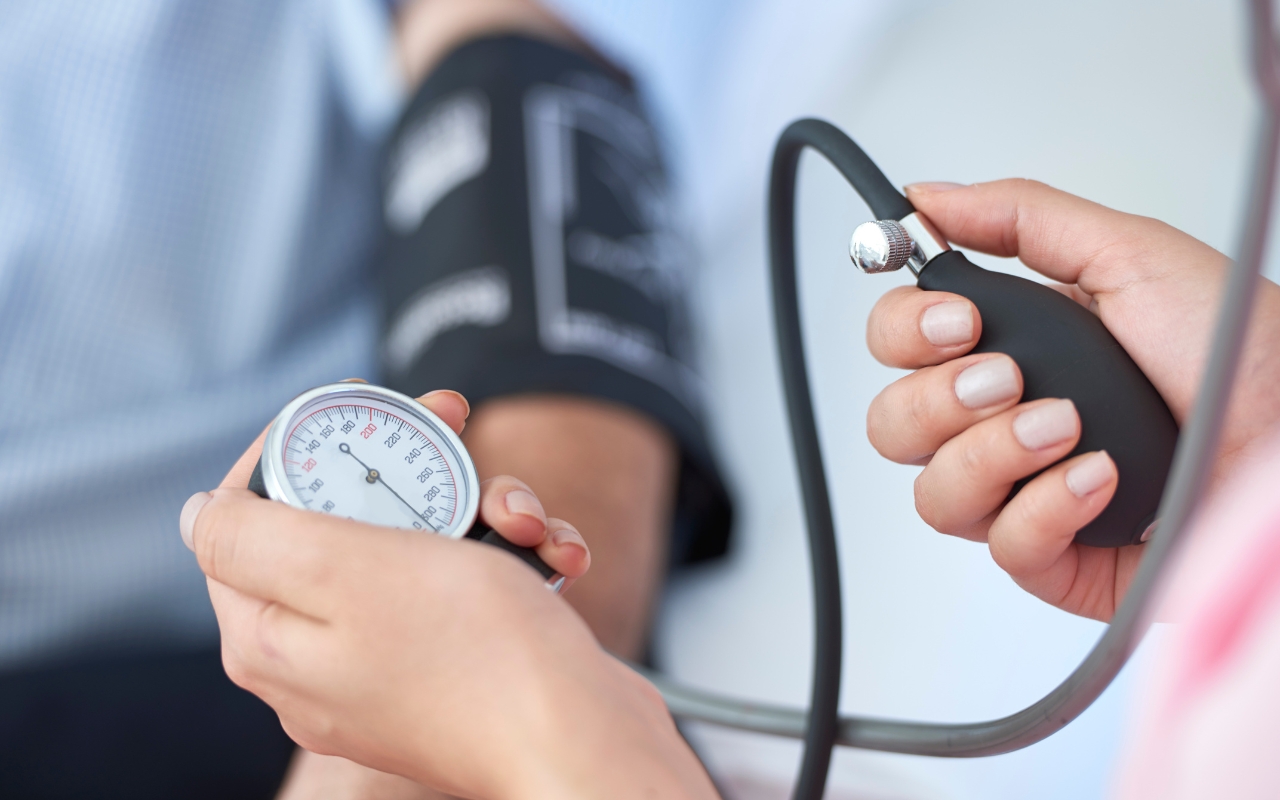High blood pressure, also known as hypertension, is a common yet serious condition that affects nearly half of American adults and millions more worldwide. Left unchecked, hypertension significantly increases the risk of heart disease, stroke, and other severe health issues. While medication is often necessary for managing high blood pressure, numerous natural strategies can help lower it. This article dives deep into effective, research-backed methods to naturally reduce high blood pressure and improve overall health.
Embrace Regular Physical Activity
Regular physical activity is one of the most effective ways to combat high blood pressure. Exercise strengthens the heart, enabling it to pump blood more efficiently, reducing the pressure in your arteries. The American Heart Association recommends at least 150 minutes of moderate aerobic exercise or 75 minutes of vigorous exercise each week, coupled with muscle-strengthening activities two or more days a week.
Incorporating physical activity into your daily routine doesn't have to be daunting. Simple activities like walking briskly for 30 minutes daily can yield significant health benefits. Finding ways to move more frequently can make a difference, even if you have a stationary job. For example, taking short breaks to walk around the office or doing light stretching can help maintain better blood flow and lower blood pressure over time.
Reduce Sodium Intake
Diet plays a critical role in managing blood pressure, and one of the most significant dietary changes you can make is reducing your sodium intake. Excessive salt consumption leads to water retention, which increases blood volume and, consequently, blood pressure. The general recommendation is to limit sodium intake to less than 2,000 milligrams per day, a goal that can be surprisingly challenging given the high sodium content in many processed and restaurant foods.
To reduce sodium intake, focus on whole, unprocessed foods like fruits, vegetables, lean proteins, and whole grains. Cooking at home allows you to control the amount of salt in your meals. When shopping, read labels carefully and choose low-sodium options whenever possible. Additionally, using herbs and spices to flavor your food can help reduce your reliance on salt without sacrificing taste.
Limit Alcohol and Caffeine
Alcohol and caffeine can both contribute to high blood pressure. Drinking in moderation is key: men should limit their intake to two drinks per day, while women should aim for no more than one. Excessive alcohol consumption not only raises blood pressure but can also interfere with the effectiveness of blood pressure medications.
Caffeine can cause a short-term spike in blood pressure, although its long-term effects vary among individuals. For those sensitive to caffeine, reducing intake can help lower blood pressure. Monitor your blood pressure before and after consuming caffeinated beverages to assess your sensitivity and make adjustments accordingly.
Manage Stress Effectively
Chronic stress is a significant contributor to high blood pressure. When stressed, your body enters a “fight or flight” mode, leading to increased heart rate and constricted blood vessels. Over time, this response can result in consistently high blood pressure. Therefore, managing stress is crucial for maintaining healthy blood pressure levels.
Identifying the sources of stress in your life and finding ways to mitigate them are essential steps in stress management. Techniques such as mindfulness, meditation, deep breathing exercises, and yoga can all help reduce stress. Additionally, spending time on hobbies, connecting with loved ones, and relaxing can improve your overall well-being and help lower blood pressure.
Maintain a Healthy Weight
Carrying excess weight strains your heart, increasing the risk of high blood pressure. Even a modest weight loss can significantly impact your blood pressure. Studies have shown that losing weight can help lower blood pressure and reduce the need for blood pressure medications.
Adopting a healthy diet and increasing physical activity are key strategies for weight loss. Focus on a balanced diet rich in fruits, vegetables, lean proteins, and whole grains while limiting processed foods, sugary beverages, and high-fat items. Regular exercise helps with weight loss, improves cardiovascular health, and lowers blood pressure.
Eat a Balanced Diet Rich in Nutrients
A diet rich in essential nutrients can help lower blood pressure naturally. The DASH (Dietary Approaches to Stop Hypertension) diet, for instance, emphasizes fruits, vegetables, whole grains, lean proteins, and low-fat dairy while reducing saturated fats, cholesterol, and sweets. This diet has been proven effective in lowering blood pressure and improving heart health.
Potassium, magnesium, and calcium are essential minerals for blood pressure regulation. Potassium helps balance sodium levels in the body, magnesium aids in relaxing blood vessels, and calcium supports overall cardiovascular function. To ensure you get these essential nutrients, incorporate foods like bananas, spinach, avocados, nuts, seeds, low-fat dairy, and leafy greens into your diet.
Quit Smoking
Smoking is a major risk factor for a multitude of health problems, including high blood pressure. Each cigarette causes a temporary increase in blood pressure, and long-term smoking habits can lead to sustained hypertension and damage to the blood vessels. Quitting smoking can significantly lower blood pressure and reduce the risk of heart attack and stroke.
There are various resources available to help you quit smoking, including counseling, support groups, and smoking cessation programs. Medications and nicotine replacement therapies can also be effective in managing withdrawal symptoms and reducing cravings.
Optimize Sleep Quality
Quality sleep is essential for maintaining good health, including healthy blood pressure levels. Poor sleep quality and sleep disorders, such as sleep apnea, have been linked to high blood pressure. To improve sleep quality and establish a regular sleep schedule, aim for seven to eight hours of sleep per night.
To enhance your sleep environment, create a comfortable, cool, and dark bedroom setting. Avoid screen time and caffeine consumption before bed, as these can interfere with your ability to fall and stay asleep. Establishing a relaxing bedtime routine, such as reading a book or taking a warm bath, can help prepare your body for sleep.
Practice Mindfulness and Relaxation Techniques
Mindfulness and relaxation techniques have been shown to help lower blood pressure by reducing stress and promoting a sense of calm. Mindfulness involves being fully present in the moment and can be practiced through meditation, deep breathing exercises, and yoga.
Meditation, in particular, is effective in lowering blood pressure. Simple practices like focusing on your breath or repeating a calming mantra can help relax your mind and body. Consistent training over time can significantly improve blood pressure and overall well-being.
Reduce Sugar and Refined Carbohydrates
High consumption of sugar and refined carbohydrates can lead to weight gain and increased blood pressure. These foods cause spikes in blood sugar levels, leading to insulin resistance and inflammation, negatively impacting blood pressure.
Choosing healthier carbohydrate sources, such as whole grains, fruits, and vegetables, can help maintain stable blood sugar levels and support healthy blood pressure. Reducing your intake of sugary beverages, sweets, and processed foods can also significantly improve your overall health and aid in blood pressure management.
Incorporate More Potassium-Rich Foods
Potassium is a crucial mineral that helps balance the effects of sodium in the body and relax blood vessel walls, both of which can lower blood pressure. Foods rich in potassium include bananas, oranges, potatoes, tomatoes, and leafy green vegetables.
Increasing your potassium intake through diet rather than supplements is generally recommended. This approach ensures you receive other beneficial nutrients and fiber from whole foods. Aiming for a varied diet with plenty of fruits and vegetables can help you meet your potassium needs and support healthy blood pressure levels.
Limit Your Intake of Processed Foods
Processed foods are often high in sodium, unhealthy fats, and added sugars, all of which can contribute to high blood pressure. Reducing your consumption of processed foods and focusing on whole, unprocessed foods can help lower blood pressure and improve overall health.
When grocery shopping, stick to the outer aisles, where fresh produce, lean proteins, and dairy products are typically located. Avoid the inner aisles, where processed and packaged foods are more prevalent. Cooking at home allows you to control ingredients and make healthier choices.
Explore Natural Supplements
Some natural supplements have been shown to help lower blood pressure. These include omega-3 fatty acids, magnesium, and Coenzyme Q10. Omega-3 fatty acids in fish and flaxseed oils help reduce inflammation and improve heart health. Magnesium aids in the relaxation of blood vessels and can be found in supplements or magnesium-rich foods like nuts and leafy greens. Coenzyme Q10, an antioxidant, supports cardiovascular function and can benefit those with high blood pressure.
Before starting any supplement regimen, it’s essential to consult with a healthcare professional to ensure they are safe and appropriate for your individual health needs.
Monitor Your Blood Pressure Regularly
Regular blood pressure monitoring is essential for managing hypertension. Tracking your blood pressure readings can help you and your healthcare provider determine the effectiveness of your management plan and make necessary adjustments.
Home blood pressure monitors are widely available and can be a valuable tool for tracking blood pressure between doctor visits. Keeping a log of your readings and notes about lifestyle changes or symptoms you experience can provide valuable insights into your blood pressure trends.
Seek Professional Guidance
While lifestyle and dietary changes can significantly impact blood pressure, it is important to work with a healthcare professional to develop a comprehensive management plan. Your doctor can help identify any underlying conditions contributing to high blood pressure and prescribe medications if necessary.
Regular check-ups and open communication with your healthcare provider are essential to managing high blood pressure and maintaining overall health. Don’t hesitate to reach out for support and guidance as you navigate your journey to better health.
Conclusion
Managing high blood pressure naturally involves a holistic approach that includes regular physical activity, dietary changes, stress management, and healthy lifestyle habits. By making these adjustments, you can significantly improve your blood pressure and reduce your risk of severe health complications.
Incorporating these natural strategies into your daily routine can lead to lasting improvements in your health and well-being. Remember, it’s never too early or late to start making positive changes. With dedication and the proper support, you can achieve and maintain healthy blood pressure levels.
For more information on managing blood pressure and adopting a heart-healthy lifestyle, consider exploring resources from Nebraska Medicine, Houston Methodist, and Healthline.
By taking proactive steps and prioritizing your health, you can enjoy a life of vitality and well-being, free from the constraints of high blood pressure.










